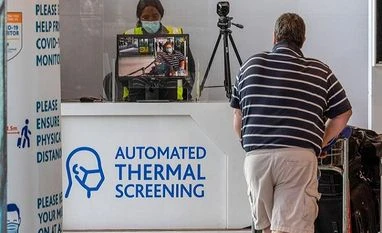South Africa has surpassed the 100,000-mark in COVID-19 related deaths, but the government still plans to end the lockdown restrictions "soon", despite scientists warnings that a fifth wave is imminent next month as winter season starts.
The National Institute for Communicable Diseases reported on Friday that the total number of fatalities from the pandemic now stood at 100,020.
But the government still plans to lift the national State of Disaster soon and has no plans to introduce a mandatory COVID-19 vaccine policy in the country, Deputy President David Mabuza told the South African parliament.
Mabuza was responding to oral questions in parliament.
We think (forcing people to vaccinate) would be crossing the red line'. All we can do is encourage our people to go and vaccinate," Mabuza said.
Despite a wide range of initiatives to encourage large-scale vaccination, there has a been a great reluctance to do so, spurred on by optimism after the government relaxed regulations that enforced mask-wearing in public, and opened up sports and entertainment facilities to increased spectator and audience numbers.
More From This Section
Mabuza said the easing of these regulations announced by President Cyril Ramaphosa last week was part of attempts to convince citizens to take the vaccine voluntarily, as they would be required to show this when attending events.
Mabuza also said plans announced by Ramaphosa for amended health regulations to replace the much harsher 'State of Disaster' laws that have been in place for over two years now were underway, despite warnings from experts about the risk of a fifth wave.
He confirmed the views of some scientists that this wave would be less severe than previous ones, because the population had reportedly developed a level of herd immunity.
While the government would not enforce vaccination, the new health regulations, which are out for public comment until 15 April before being promulgated, still make provision for employers to insist on staff being vaccinated to continue working in their offices.
While no government mandate will be introduced, planned regulations will still allow private groups to introduce their own mandates.
Some major companies have been at the centre of controversy for insisting that employees provide proof of vaccination, especially those who work in areas where they come into contact with members of the public as part of their duties.
Unions have opposed this move and have threatened to challenge it in court as an infringement of the constitutional rights of employees.
)